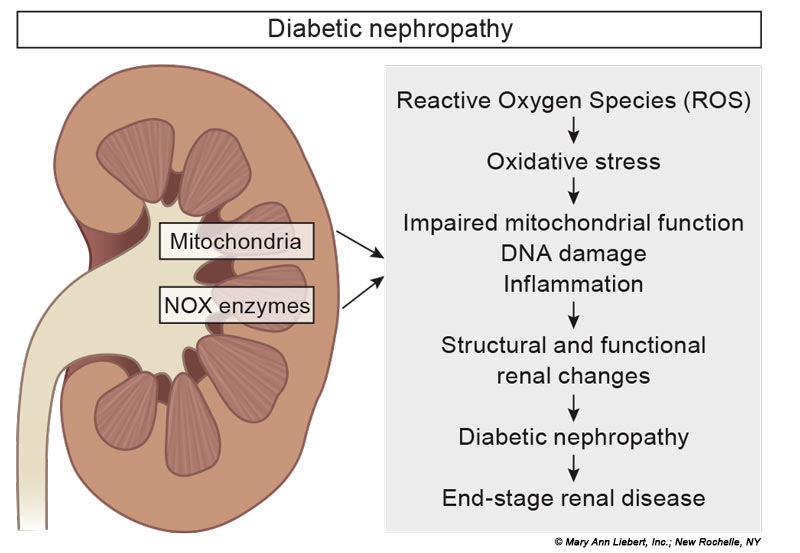
The research group for nephropathy deals with the kidney-specific long-term complications of diabetes mellitus.
Diabetic nephropathy is the leading cause for end-stage renal disease, which requires dialysis or renal transplantation. Oxidative stress plays a critical role in the development and progression of diabetic nephropathy. Oxidative stress is created by reactive oxygen species (ROS), which are being mainly produced by mitochondria and NADPH oxidases (NOXs) in renal cells under pathological conditions, and contribute to mitochondrial functional impairments, DNA damage and the induction of inflammatory pathways. These lead to structural and functional changes in the renal tissue, and thus to the development of diabetic nephropathy. The main focus of the research group for nephropathy is the development of innovative therapeutic strategies to inhibit the overproduction of renal ROS that would avoid pathological changes in the kidney, and thus lead to a prevention of the development and progression of diabetic nephropathy.
Team
Selected Publications
- Jha JC, Dai A, Holterman CE, Cooper ME, Touyz RM, Kennedy CR, Jandeleit-Dahm KAM 2019. Endothelial or vascular smooth muscle cell-specific expression of human NOX5 exacerbates renal inflammation, fibrosis and albuminuria in the Akita mouse. Diabetologia. 62: 1712-1726. https://doi.org/10.1007/s00125-019-4924-z
